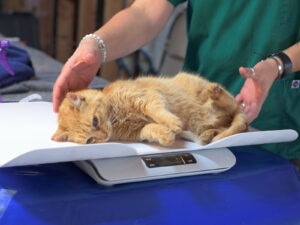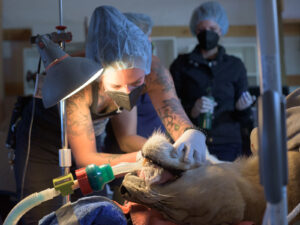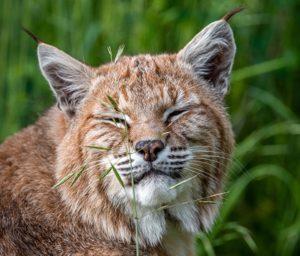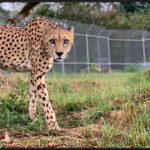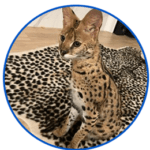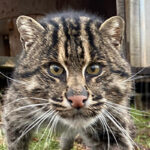A Tribute to Our Serval, Sable
The Keeper Journal
One of the biggest challenges of our jobs as keepers is letting go of the animals in our care. As a retirement home for all of these animals we take in, we are able to promise them the best quality of care after the trauma they likely endured before calling WildCat Ridge home.
This also means, however, that they stay with us until it is time to move on and they tell us it is time for them to go. Recently, such was the case with our precious serval girl, Sable.
A serval with a past
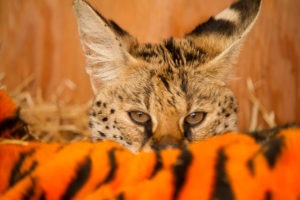 Sable had been purchased as a kitten in 2001 from a pet store in Washington State. Unfortunately, she was poorly cared for by her original owners, and was taken by a caring friend who found Sable very ill and with many open wounds on her body.
Sable had been purchased as a kitten in 2001 from a pet store in Washington State. Unfortunately, she was poorly cared for by her original owners, and was taken by a caring friend who found Sable very ill and with many open wounds on her body.
After Sable received the necessary vet care, this friend took Sable into her home in California. But owning a serval is not legal in CA, and after a time, she relinquished ownership to save Sable from being euthanized.
Sable then came to live at WildCat Ridge and called its peaceful landscape her home ever since.
A special one amongst the keepers
Of course, we're not allowed to have favorites, but there was no way to look at Sable without falling in love with her. Every single one of the keepers had a special, unique relationship with Sable.
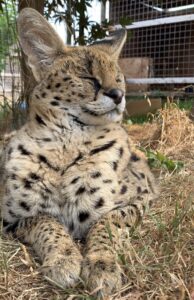
We looked forward to walking into Charlie perimeter early in the morning, greeted by her insistent meows that breakfast was, indeed, late.
We discovered that she absolutely loved cucumbers and enthusiastically brought them out to her for enrichment when we could. She loved cut up pieces of chicken and chicken hearts, but wasn't always fond of eating them off the ground.
But none of us minded sitting for an extra ten minutes with her to tong feed her piece by piece.
Servals are often characterized by their high energy rambunctiousness, but Sable was always on the gentler side, politely taking her food and participating eagerly in activities like painting.
She never minded when we came in to clean her pen (her enclosure-mate, Safari, on the other hand, would let us know we were the biggest inconvenience.) In fact, Sable minded so little that we would often have to work around her in her reluctance to move from her spot.
Always gentle, always loving
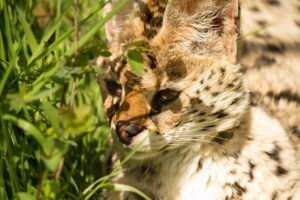
It might sound funny to call her a loving serval, but that's what she was. Sable had a gentle, peaceful look in her eyes that comforted you even on the hardest days. Towards the end, we definitely noticed as she began to slow down, but she never lost that look, never lost her gentle spirit.
The keepers took her passing with much sadness, but we are grateful for the chance we had to work with her and get to know her, and the opportunity we had to love her.
Rest in peace, sweet Sable, you will be missed.

